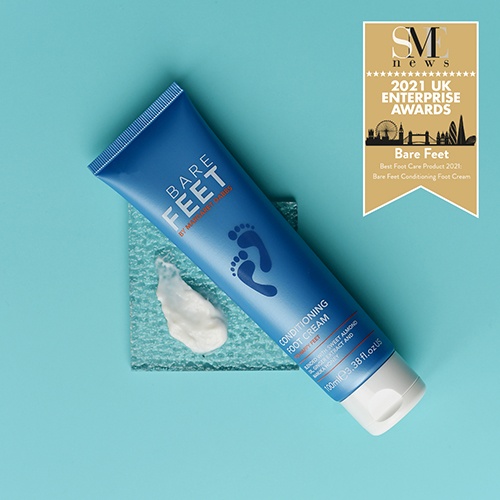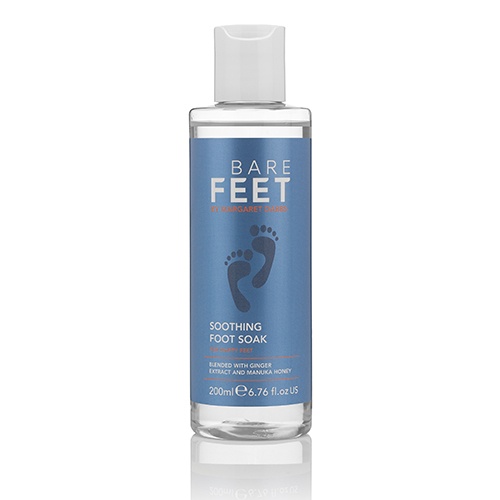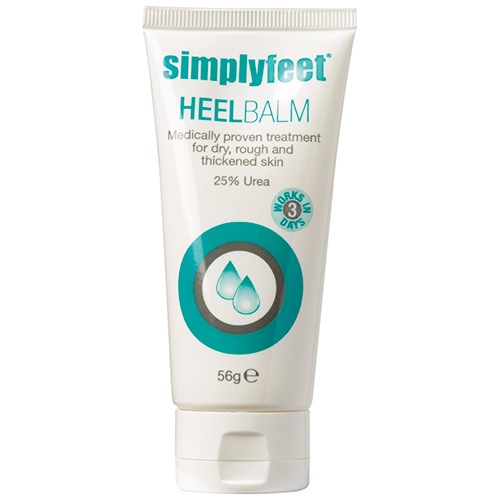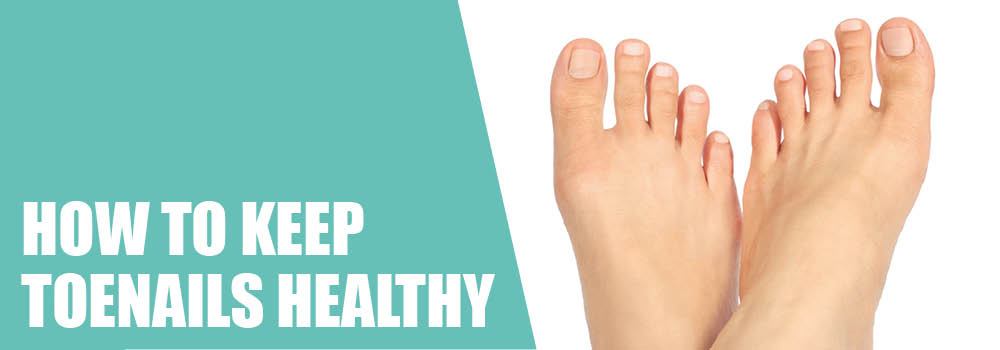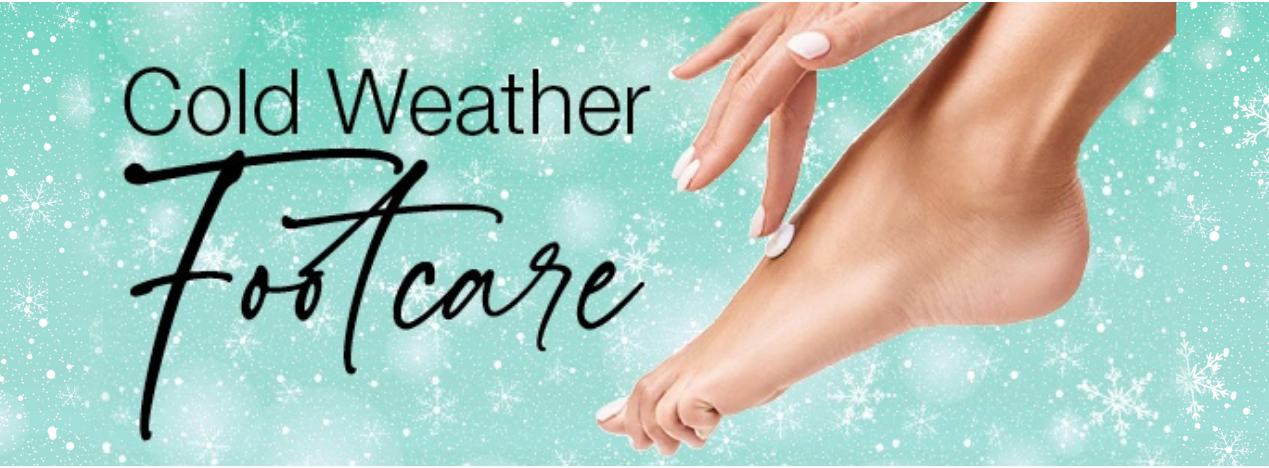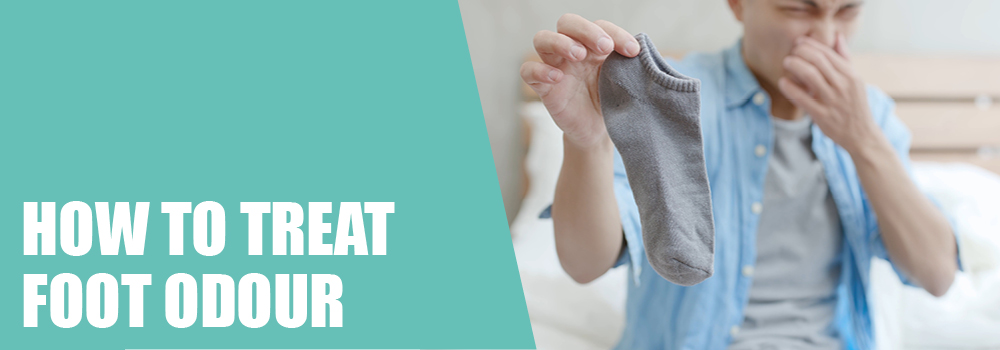How To Get Rid of Hard Skin on Feet
- Mrs G
- Simply Feet
- 27 Apr 2023
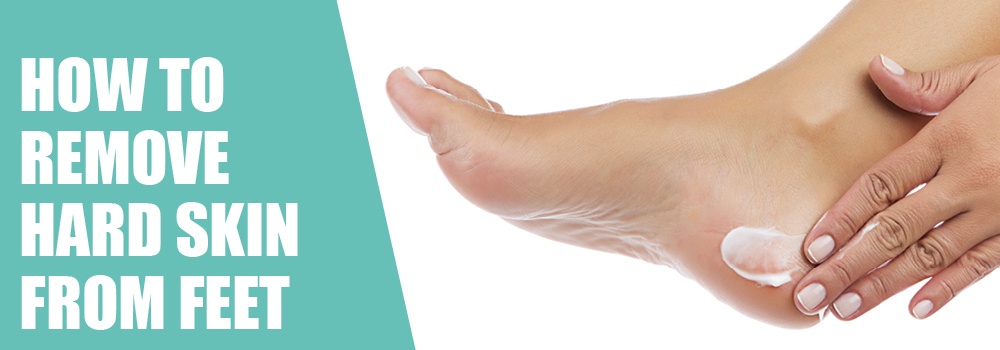
Having hard skin on your feet is a common issue that many people suffer from. As summer approaches, many desire smooth feet ready to wear sandals. In this guide, we will explore hard skin and its causes, how you can prevent it and how to remove hard skin from your feet.
What Causes Hard Skin On Feet?
Dead skin forming on your feet is natural, as it is the foot's way of naturally exfoliating and shedding dead skin cells. It tends to be more commonly found on feet that go through repeated friction, rubbing, or irritation. Here are some of the leading causes of hard skin on feet:
- Being on your feet for long periods - For example when you are standing up working or walking as this can cause friction between the skin and the shoe.
- Using harsh soaps and detergents - Using harsh soap and detergents remove the skin's natural protective oils, resulting in the skin not holding moisture leading to dry skin.
- Wearing poorly fitted footwear - If your shoes are too tight or loose, it can cause friction.
- Walking barefoot - Walking barefoot can cause the skin to thicken and harden as it begins to protect itself from rough surfaces and friction.
- Overuse of certain areas of the feet - Some sports or activities, such as running or dancing, can cause repeated pressure on specific areas of the feet.
- Ageing - As we age, our skin becomes drier and thinner, resulting in it becoming more prone to calluses and corns.
- Heat and humidity - Heat and humidity can cause your feet to sweat, accumulating dead skin cells. This also increases the moisture which can cause the skin to become soft and prone to cracking, resulting in a dry skin build-up.
- Medical conditions - Medical conditions such as diabetes, psoriasis, athlete's foot, fungal infections and eczema can cause dead skin on the feet.
How To Prevent Hard Skin On Feet
Preventing hard skin on your feet involves taking good care of your feet on a regular basis. Here are some tips to help prevent hard skin on your feet:
- Always dry your feet thoroughly after showering and bathing, and regularly moisturise your feet.
- Wear comfortable footwear that fits properly, avoiding shoes that are either too loose, too tight or cause friction between the shoe and skin.
- If you are on your feet for long periods of time and are prone to hard skin, then you may benefit from extra support from gel insoles.
- Respond to foot pain as soon as possible before it becomes a more severe problem.
How To Get Rid of Hard Skin On Feet
Keep your feet smooth and soft by following these easy step-by-steps on how to remove hard skin from your feet.
- Soak your feet in warm water for approximately 10 minutes, as this will soften the skin on your feet.
- Use a foot scrub or pumice stone to scrub the dead skin gently. Be careful not to scrub too hard so you avoid damaging healthy skin.
- Use a moisturiser after removing the dead skin from your feet, as this will keep them soft and smooth.
Please note if you have a medical condition such as Diabetes you should seek medical advice from a Podiatrist before any treatment is commenced.
If you are still struggling to remove the hard skin from your feet, then another option is to use a foot exfoliating sock. These are a great option for removing dead skin, and they typically work in 7-10 days but can vary from person to person.
Why Not Try
The Different Types of Hard Skin on Feet
Calluses and corns are two commonly found hard skin conditions found on feet. They are thick, hardened layers of skin that develop when the skin tries to protect itself against friction or pressure. Continue reading to find out more about calluses and corns and how you can treat them.
Calluses
A callus is a thickened and hardened skin area that forms as a protective response anywhere on the feet due to repeated friction, pressure or irritation. They are usually harmless but can sometimes cause some discomfort or pain
Corns
Corns are small, round areas of thickened skin that develop on the feet or toes, and they typically develop due to repetitive friction or pressure. Corns are commonly found on the top of, between the toes or on the soles of the feet. They can be caused by ill-fitting shoes, high heels, or other foot problems such as bunions or hammertoes. Corns are typically not harmful but can cause discomfort and may need treatment by a podiatrist.
How To Treat Calluses and Corns
There are a number of ways to treat corns and calluses at home including:
- Moisturising your feet to keep your skin soft
- Soaking your feet in warm water to soften them
- Wearing insoles or heel pads in your shoes for added comfort
- Wearing thick, cushioned socks for added comfort
- Regularly using a pumice stone or foot file to remove hard skin
- Wearing wide comfortable shoes with a low heel and soft sole to stop your feet from rubbing
Please note if you have a medical condition such as Diabetes you should seek medical advice from a Podiatrist before any treatment is commenced.
If your corns and calluses persist, then we recommend speaking with your GP or podiatrist.
Why Is It Important to Remove Hard Skin From Your Feet?
Removing hard skin from your feet might be the last thing on your to do list but it can become incredibly uncomfortable and painful if corns and calluses are left to build up over time. This can not only make it uncomfortable to walk but can prevent you from doing everyday activities.
Furthermore, leaving hard skin can cause you to have cracked or sore skin on your feet. If left untreated this can lead to blisters, which may increase your chances of infection. A build up of dry skin can also cause your skin to lose the ability to stretch, reducing sensitivity over time.
In summary, it's best to practise good foot care and hygiene all year round to prevent hard skin from developing. This will also help to keep your feet comfortable and soft.
Start Treating Your Hard Skin Today
At Simply Feet, we recommend consulting your local podiatrist or doctor if the hard skin on your feet is causing you pain or if you have any medical conditions.
Alternatively, if you would like to treat your dry feet at home you can browse our range of products designed especially for dry feet, calluses or corns. We also offer a range of men’s and women’s footwear which are excellent for supporting your feet.
If you require assistance or guidance on any of our products, please contact us here, and a staff member will contact you as soon as possible!

